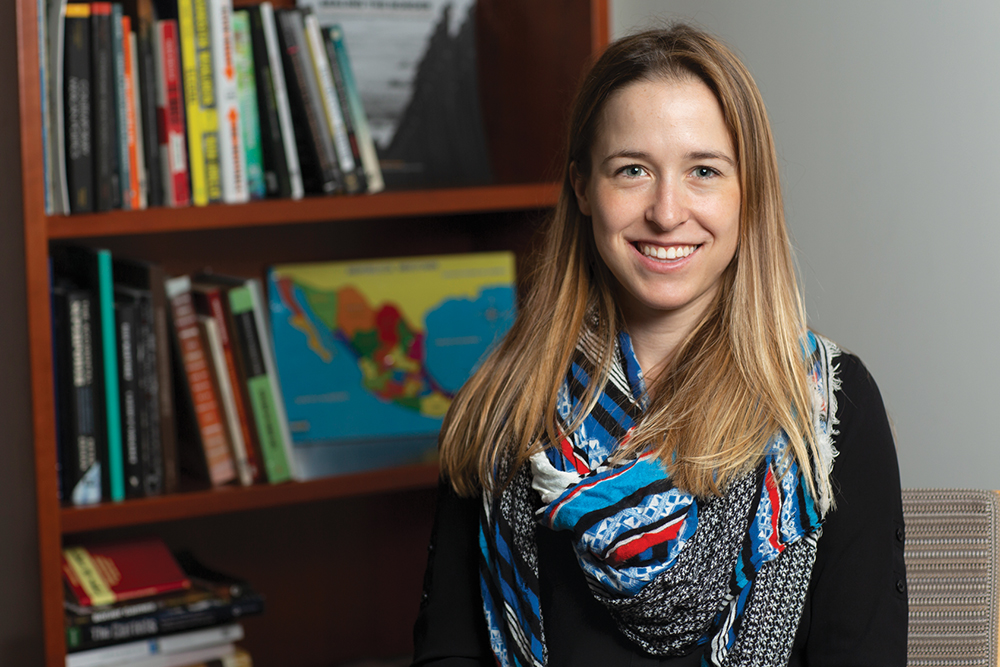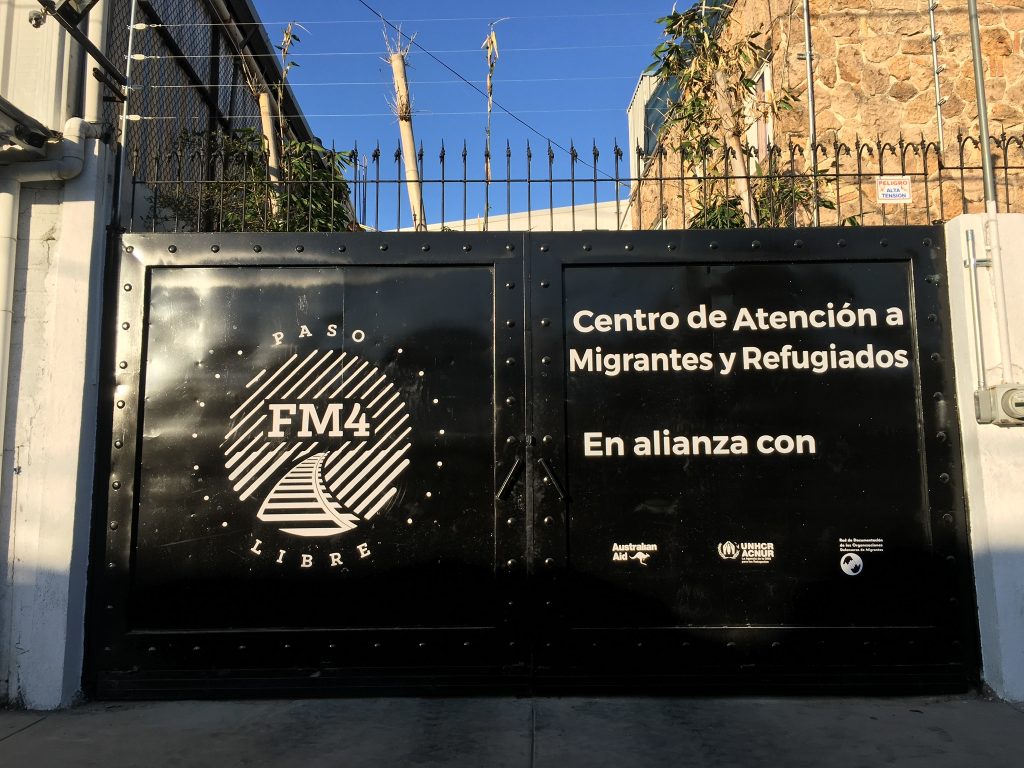
BY SUSANNA SHARPE
STEPHANIE LEUTERT IS NOT AFRAID to make a cold call and she does not shy away from difficult questions. If she wants to learn more about an issue, she will often pick up the phone to ask an expert. These qualities, along with a deep sense of justice and humanity, have led her to research areas that straddle borders, governments, agencies, and issues.
An expert on migration in Central America, Mexico, and the United States, Leutert came to the University of Texas at Austin in summer 2016 to work as a policy research fellow at the Richard Strauss Center for International Security and Law. In spring 2017, she led a group of master’s students to Mexico City to meet with government officials and civil society representatives in conjunction with a policy research class at the LBJ School of Public Affairs taught by César Martínez. By fall 2017, Leutert had been named director of the Mexico Security Initiative, a project within that Strauss Center that gathers research on public security and migration in the region.
In the almost two years since she took the reins at the Mexico Security Initiative, Leutert has become a sought-after expert on migration through Mexico. In fall 2018, she was invited to contribute her expertise to the New York Times, which published her op-ed titled “Trump Has It Backward: Many Migrants Are Victims of Crime” (Sept. 18, 2018). (Leutert was selected as a winner of the LLILAS Benson Mexico Center op-ed award for this piece.) She has been invaluable at the LBJ School, teaching the Policy Research Project capstone class, a yearlong, hands-on seminar for master’s and doctoral students that assigns the class to a client.

In its first year, the class partnered with Mexican Federal Police (Policía Federal) and a nongovernmental organization named Sin Fronteras that provides legal services to refugees in Mexico City. The resulting study by the student researchers yielded a series of recommendations, including (1) ways for the Federal Police to create accountability for officers who committed crimes; (2) methods to develop better dialogue with local officials and civil society; (3) suggestions on separating the dual mandate of the Federal Police, which is to protect migrants and also to assist in their apprehension.
For the 2018–19 term, the Policy Research Project worked with FM4 (Forma Migratoria 4), a civil society organization in Guadalajara, Mexico. The group gets its name from the concept that Mexico’s three categories for migrants (called formas) are insufficient, and that a fourth category should be added—paso libre (free passage). “Paso libre means that migrants from elsewhere should be able to be in Mexico legally and not hide in the shadows,” Leutert explains. FM4 works with state and federal agencies, provides humanitarian assistance to migrants, and has organized a network of migrant shelters across Mexico.
In their research with FM4, Leutert’s Policy Research Project students focused on four topics that affect migrants in Mexico: (1) challenges for refugee integration in Mexico; (2) evaluation of Mexico’s migratory detention system; (3) challenges for unaccompanied minors in access to protection; and (4) the problematic legacy of Programa Frontera Sur (Southern Border Program, launched July 2014), which paid lip service to protecting migrants who enter Mexico from the south, but in reality has led to increased human rights violations of migrants.

Each of these four areas was addressed by teams of students in a separate sixty-page report at the end of the academic year. In 2019–20, the class will look at migrant caravans and how Mexico addresses them, as well as challenges on the US–Mexico border.
Leutert’s current research takes on a grim topic. She is focusing on migrant deaths in Brooks County, Texas, the most dangerous county in the United States for migrants. She explains that the Customs and Border Patrol checkpoint is located in Brooks, which means that in order to avoid it, migrants walk through arid ranch land, putting themselves at great risk of dying from exposure, heat exhaustion, dehydration, and hyper- or hypothermia.
More than 650 bodies have been recovered in Brooks County over the last ten years. Leutert is working to create a database that gathers as much information as possible on the dead, and then tries to piece together details about each person, in hopes of preserving their stories and, if possible, their identity. She has been helped in this project by county sheriff Urbino “Benny” Martinez, whom she met when she picked up the phone and cold-called him.
Over the long term, Leutert plans to do more work examining the effects of US policies on the US–Mexico border. For example, she wants to collect more data and conduct fieldwork on the intersection of phenomena that play a role in migration, such as climate change and its effects on crops and people’s livelihoods.
Wherever her area of focus ends up being, Leutert will most assuredly bring her keen analytical mind and deep sense of humanity to the questions at hand.
Susanna Sharpe is communications coordinator at LLILAS Benson Latin American Studies and Collections, and editor of Portal magazine.


